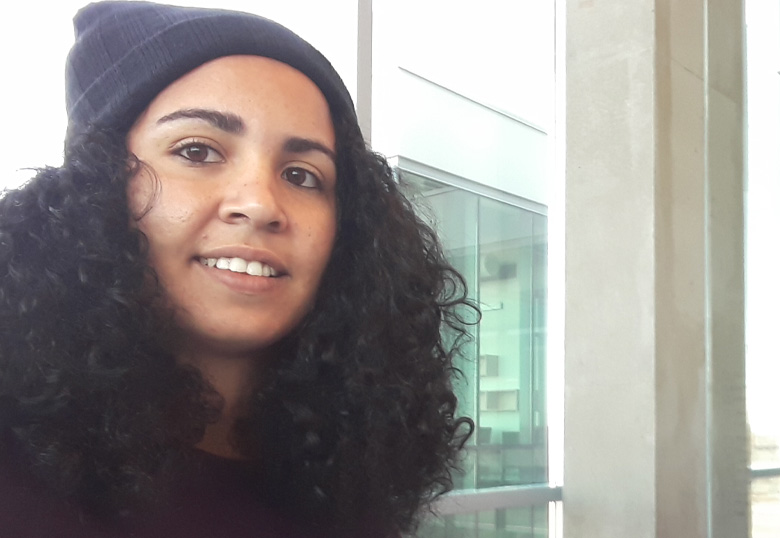The idea of coming to Canada to continue her studies had been established long before Cuban-born Amanda Vazquez Gonzalez began seeking scholarship support to do so. Actually embarking on the trip, just as the COVID-19 pandemic was beginning to take over the planet, nearly ended her dream.

Vazquez Gonzalez is at the University of Lethbridge now, the recipient of a Philanthropic Educational Organization (PEO) International Peace Scholarship (IPS) that has allowed her to work towards her PhD in biomolecular science as part of Dr. H.J. Wieden’s Laboratory for Biomolecular Design and Engineering. The IPS fund is a program which provides scholarships for selected women from other countries to pursue graduate studies in Canada or the United States.
“I am excited to have such an outstanding student join the U of L and my research team,” says Wieden. “Amanda’s story is an excellent example of the barriers students face and that we have to help overcome to enable a diverse and inclusive community. It also demonstrates how critical scholarships are for this.”
Her four-year program began in the spring and was nearly derailed before she ever got started.
“I almost abandoned my plans,” says Vazquez Gonzalez, who had to endure a 40-day stay in Nicaragua en route to Canada from Cuba as she waited for her study permit to be approved. “The Canadian embassy was closed in Cuba, so I had to wait for my visa in Nicaragua. It’s a very violent country and I had to be very careful. There were some very hard times.”
A native of Havana, Vazquez Gonzalez comes from a family of high achievers. Both her parents are microbiologists and her 17-year-old younger sister is ticketed for medical school. Vazquez Gonzalez earned a bachelor’s in biochemistry and molecular biology, followed by a master’s in biochemistry from the University of Havana.
“I had the idea that once I finished my master’s, I wanted to study abroad. My mother really talked me into that because she had been to Canada several times for work. She talked about how good the education was, the laboratories, and the quality of science,” she says. “I was looking for someone doing work that was related to what I was doing when I found the HJ group. I was really motivated to see this new line of research they were developing.”
Vazquez Gonzalez is interested in a career in the pharmaceutical industry and has been engaged in studies on drug resistance.
“I’ve been working for three years on antimicrobial resistance. I was always curious about drug development and how they would just take the same drugs we always had, make some modifications but then after one or two years they are obsolete again,” she says.
The Wieden lab provides a framework for antimicrobial development by dissecting essential mechanisms for bacterial survival and virulence. Vazquez Gonzalez aims to identify potential drug targets by studying bacterial translational GTPases of unknown functions, which could open new avenues for developing antimicrobials with novel mechanisms of action.
Work in the Alberta RNA Research and Training Institute (ARRTI) is world renowned and Vazquez Gonzalez sought out the U of L lab by researching their work online. She is currently holding an NSERC CREATE Graduate Award for participating in the RNA Innovation program. Her only disappointment since coming to Canada is being shut out of the state-of-the-art Science Commons facilities within which she will conduct her research. Still, she hasn’t let it slow down her studies.
“These last three months, I’ve been mostly doing theoretical work and writing the first chapter of my thesis, which always takes a lot of time,” she says. “The group has been wonderful and really supportive. That’s something I really like about Canada, it has very good opportunities for people from developing countries, like myself, to study. That’s one thing that really helped me decide to come here.”
